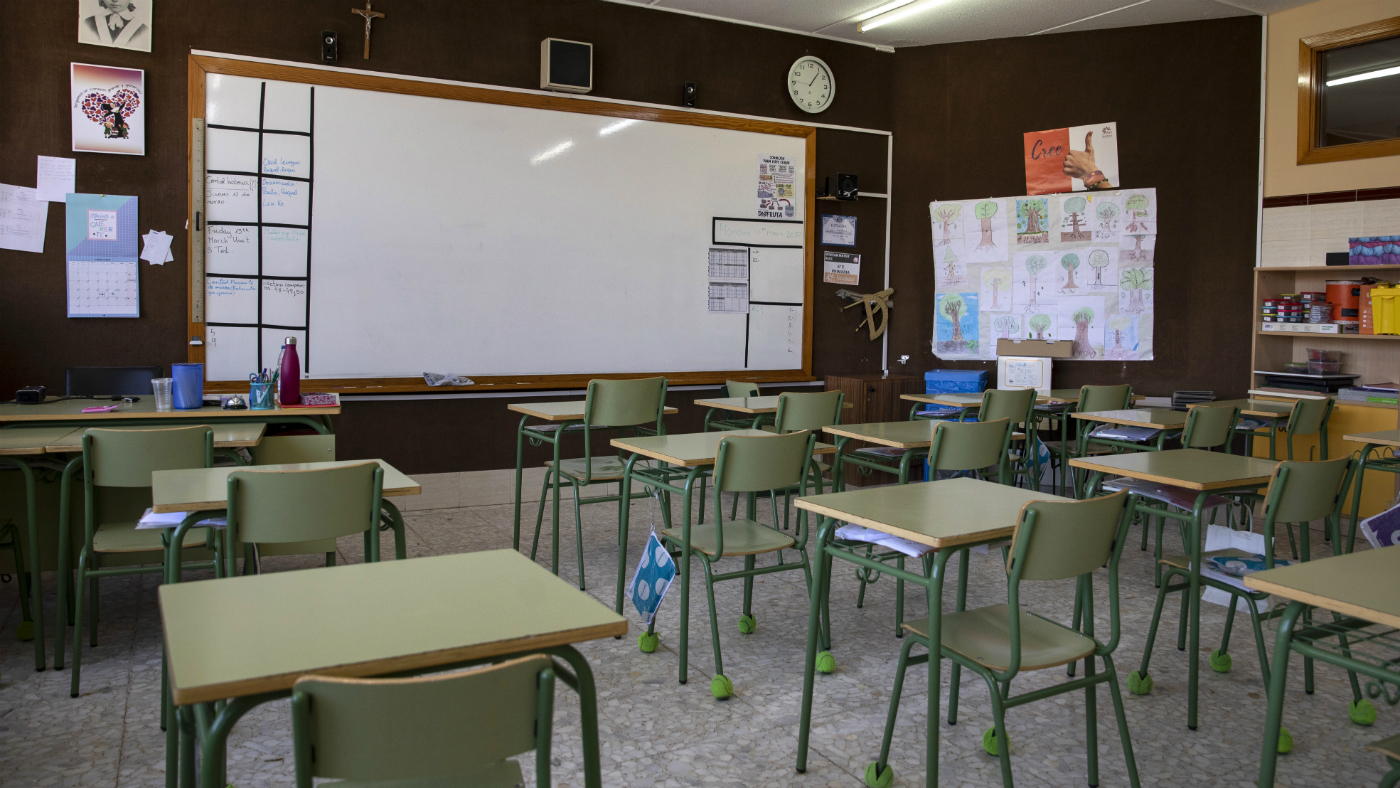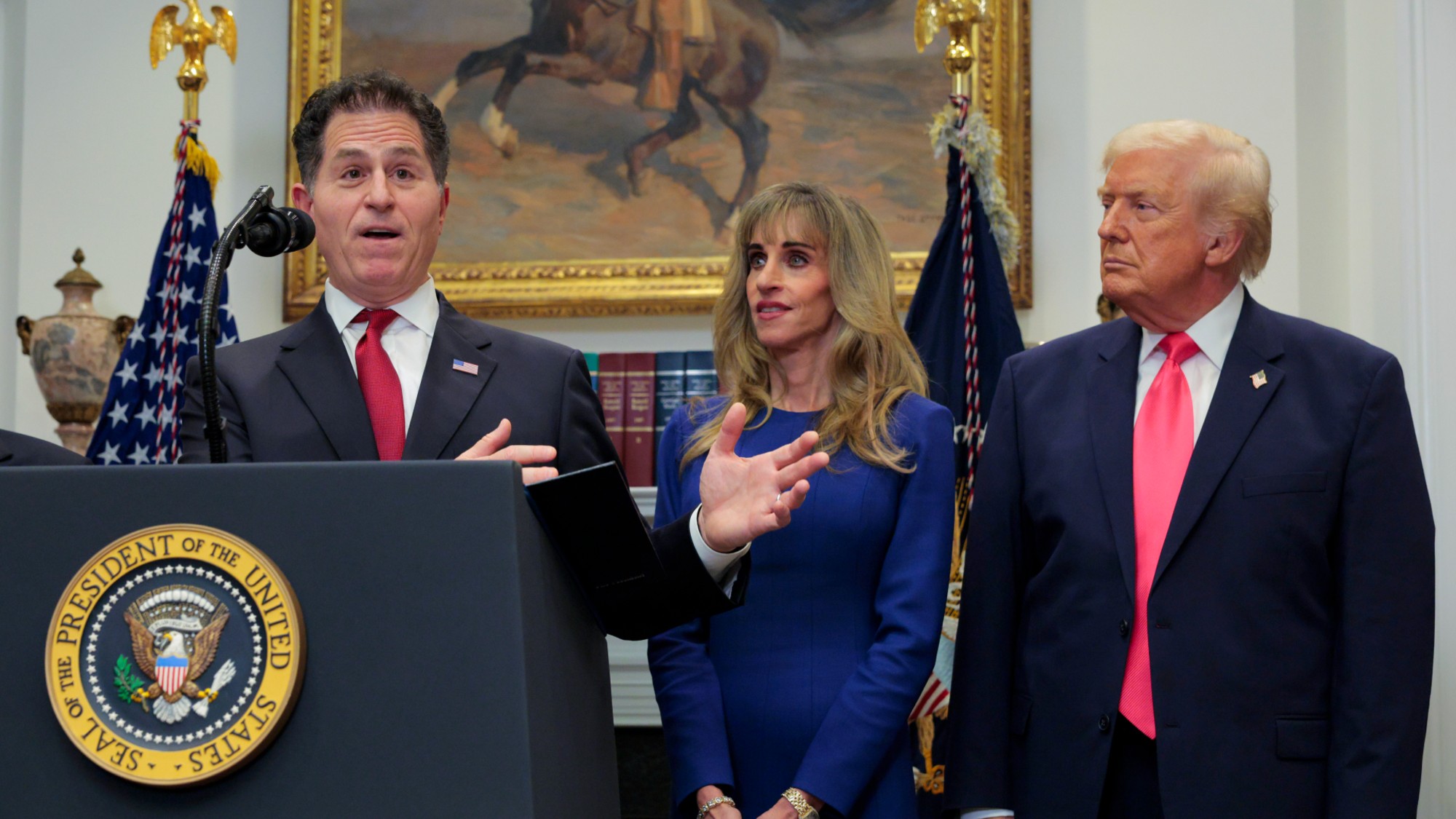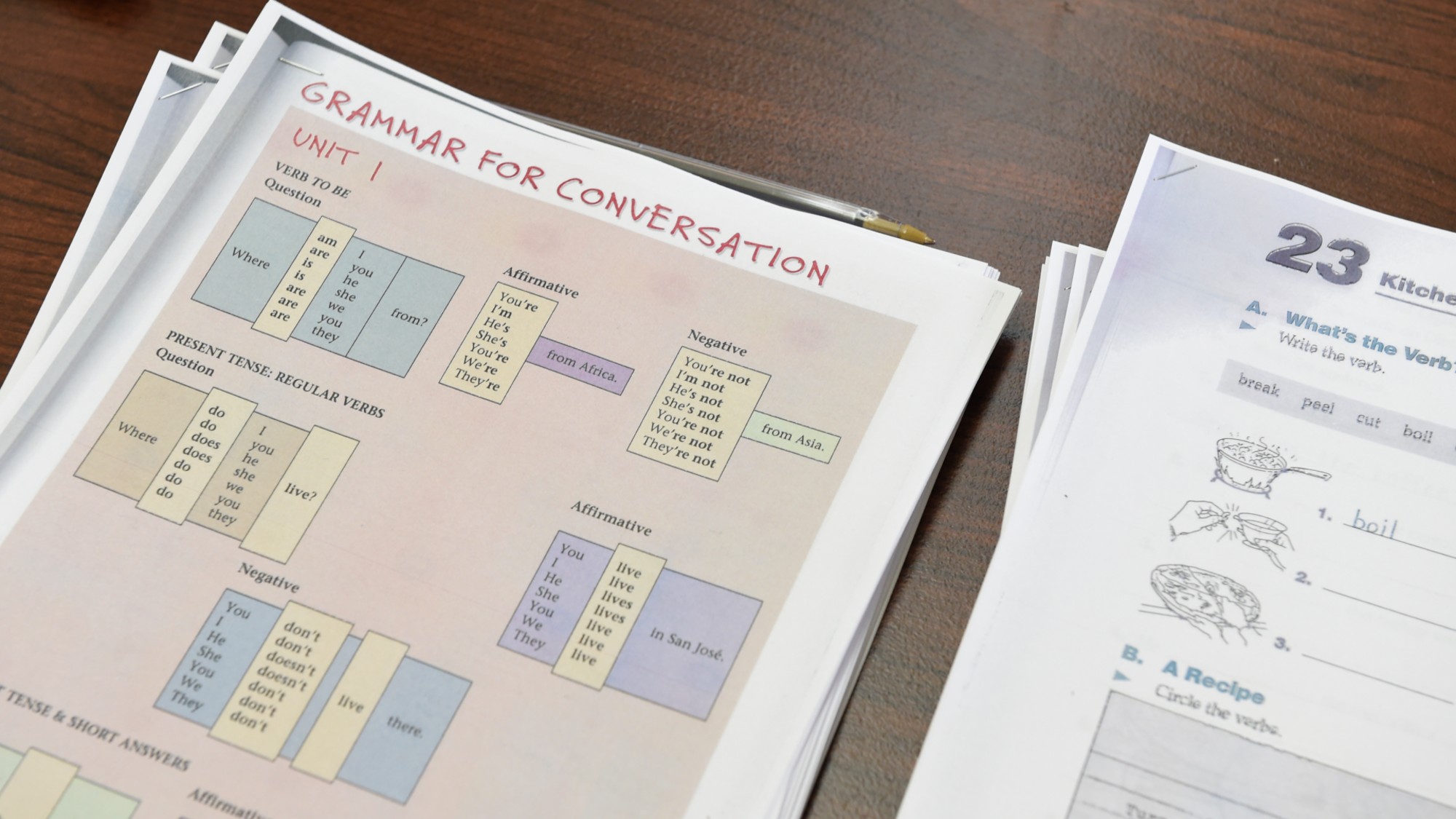Coronavirus: when will schools close?
Government sparks confusion after urging people to limit contact with others while refusing to close schools

A free daily email with the biggest news stories of the day – and the best features from TheWeek.com
You are now subscribed
Your newsletter sign-up was successful
The UK government has left parents and teachers confused after it told people to avoid even small gatherings, but stopped short of closing schools.
In his daily address on the unfolding coronavirus pandemic on Monday, Prime Minister Boris Johnson urged the public to avoid all unnecessary contact and travel, and to stay away from pubs, theatres and other public places. However, despite considerable pressure, no closure of schools was announced.
Some parents have begun taking children out of school, while over 650,000 people have signed a petition calling for government to “Close Schools/Colleges down for an appropriate amount of time amidst COVID19”.
The Week
Escape your echo chamber. Get the facts behind the news, plus analysis from multiple perspectives.

Sign up for The Week's Free Newsletters
From our morning news briefing to a weekly Good News Newsletter, get the best of The Week delivered directly to your inbox.
From our morning news briefing to a weekly Good News Newsletter, get the best of The Week delivered directly to your inbox.
But will this force the government’s hand?
Why isn’t the government closing schools?
Last week, Johnson said scientists advised that closing schools “could do more harm than good”.
Sky News reports that schools are being “advised to cancel trips abroad, and children are included in the new advice”, which says that anyone with a continuous cough and/or a high temperature must stay at home for 14 days.
A free daily email with the biggest news stories of the day – and the best features from TheWeek.com
The prime minister added that “lines of defence” must be deployed at the right time to have the full effect.
Johnson stated: “The most important task will be to protect our elderly and most vulnerable people during the peak weeks when there is the maximum risk of exposure to the disease and when the NHS will be under the most pressure.”
What do experts say?
Professor Neil Ferguson, of Imperial College London and director of the MRC Centre for Global Infectious Disease Analysis, who has been a key figure in the modelling of the spread of coronavirus, has said that shutting schools would reduce the transmission of the disease.
Speaking to the BBC Radio 4 Today programme on Tuesday, Ferguson said: “From a purely epidemiological perspective we think, with a lot of uncertainty, that closing schools and universities would further reduce transmission.
“I have to say we don’t fully understand whether children are transmitting this virus in the same way they would transmit other viruses but, assuming that, it would have an impact.”
The government is now facing growing questions over why it has stopped short of closing schools – a measure that almost every other European country has taken.
–––––––––––––––––––––––––––––––For a round-up of the most important stories from around the world – and a concise, refreshing and balanced take on the week’s news agenda – try The Week magazine. Start your trial subscription today –––––––––––––––––––––––––––––––
What do parents and teachers say?
Late last week, the National Education Union (NEU) – the largest education union in Europe – wrote to the prime minister calling on him to clarify why he has not closed schools, laying out staff concerns about UK policy.
The NEU’s joint general secretaries, Mary Bousted and Kevin Courtney, wrote: “Every day we are getting increasing numbers of questions from teachers and support staff asking why the Westminster government isn’t following the pattern of other countries in calling for periods of school closure.
“Those questions are increasingly asking why schools aren’t closing if mass gatherings are to be suspended.”
And this week the questioning ramped up considerably after Johnson once again refused to close schools, despite telling the public to avoid even small gatherings.
In response to the inaction, parents have reportedly begun “taking the decision into their own hands”, HuffPost UK says, and are “flouting official advice by keeping their children off school to protect their health”.
But the site notes that the “prospect of getting fined for failing to send their children to school is worrying many parents”, adding that a petition entitled “No prosecution for parents that remove child from school during a pandemic” has already reached close to 80,000 signatures.
When might schools close?
Schools Week reports that teaching unions and school leaders are holding frequent talks with Education Secretary Gavin Williamson to discuss plans for schools and colleges.
On Monday, Williamson met Geoff Barton, the leader of the Association of School and College Leaders (ASCL) and Paul Whiteman, who heads up the National Association of Head Teachers (NAHT). In a statement published later, the pair said they had a “very productive meeting” with the minister, adding that it was “likely that a number of schools will have to close” in the coming weeks.
However, the pair also stated they were concerned “about the implications for pupils with special educational needs and disabilities as well as children who receive free school meals if a school is closed or they have to self-isolate, and similarly, the wellbeing of vulnerable young people where there are identified safeguarding risks”.
“There is also the crucial question of SATs, GCSE and A-level exams which are scheduled in May and June,” they said. “We must move quickly to provide clarity and address the obvious anxiety for pupils, families and staff about what may or may not happen, and what contingencies are in place to deal with the inevitable disruption.”
However, the government’s hand could be forced by teachers and parents when it comes to closures. The Guardian reports that “growing numbers of schools in England could be forced to close and send children home as a result of staff shortages” as “teachers with symptoms follow government guidance to self-isolate”.
-
 The week’s best photos
The week’s best photosIn Pictures An explosive meal, a carnival of joy, and more
-
 The ‘ravenous’ demand for Cornish minerals
The ‘ravenous’ demand for Cornish mineralsUnder the Radar Growing need for critical minerals to power tech has intensified ‘appetite’ for lithium, which could be a ‘huge boon’ for local economy
-
 Why are election experts taking Trump’s midterm threats seriously?
Why are election experts taking Trump’s midterm threats seriously?IN THE SPOTLIGHT As the president muses about polling place deployments and a centralized electoral system aimed at one-party control, lawmakers are taking this administration at its word
-
 How corrupt is the UK?
How corrupt is the UK?The Explainer Decline in standards ‘risks becoming a defining feature of our political culture’ as Britain falls to lowest ever score on global index
-
 The high street: Britain’s next political battleground?
The high street: Britain’s next political battleground?In the Spotlight Mass closure of shops and influx of organised crime are fuelling voter anger, and offer an opening for Reform UK
-
 ‘These accounts clearly are designed as a capitalist alternative’
‘These accounts clearly are designed as a capitalist alternative’Instant Opinion Opinion, comment and editorials of the day
-
 Is a Reform-Tory pact becoming more likely?
Is a Reform-Tory pact becoming more likely?Today’s Big Question Nigel Farage’s party is ahead in the polls but still falls well short of a Commons majority, while Conservatives are still losing MPs to Reform
-
 ‘Every teacher is a literacy teacher’
‘Every teacher is a literacy teacher’Instant Opinion Opinion, comment and editorials of the day
-
 Asylum hotels: everything you need to know
Asylum hotels: everything you need to knowThe Explainer Using hotels to house asylum seekers has proved extremely unpopular. Why, and what can the government do about it?
-
 ‘Congratulations on your house, but maybe try a greyhound instead’
‘Congratulations on your house, but maybe try a greyhound instead’Instant Opinion Opinion, comment and editorials of the day
-
 Taking the low road: why the SNP is still standing strong
Taking the low road: why the SNP is still standing strongTalking Point Party is on track for a fifth consecutive victory in May’s Holyrood election, despite controversies and plummeting support